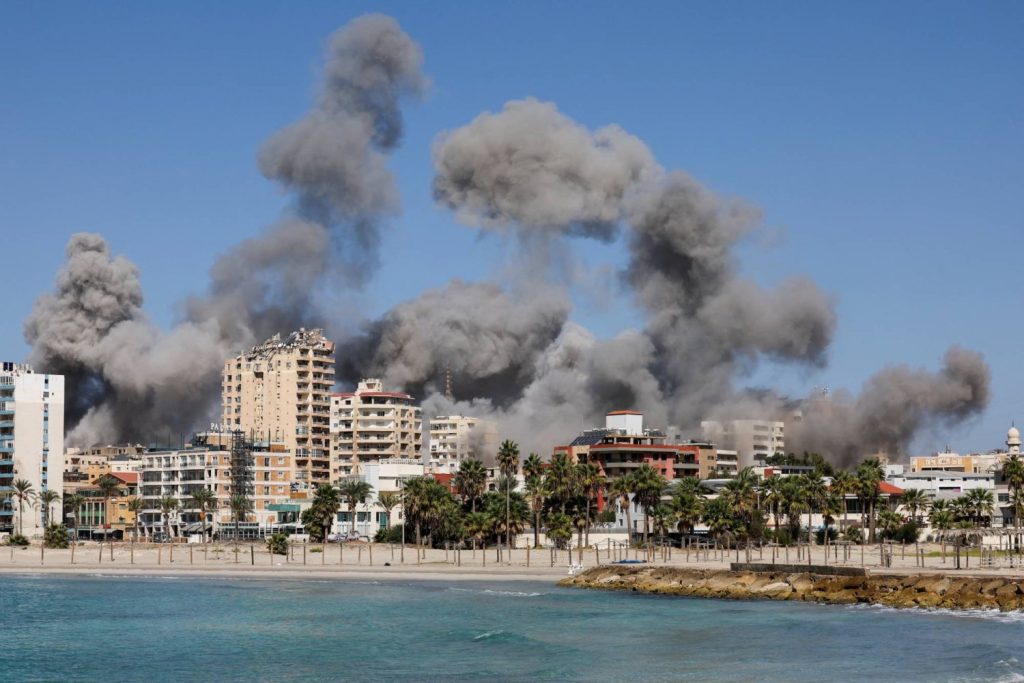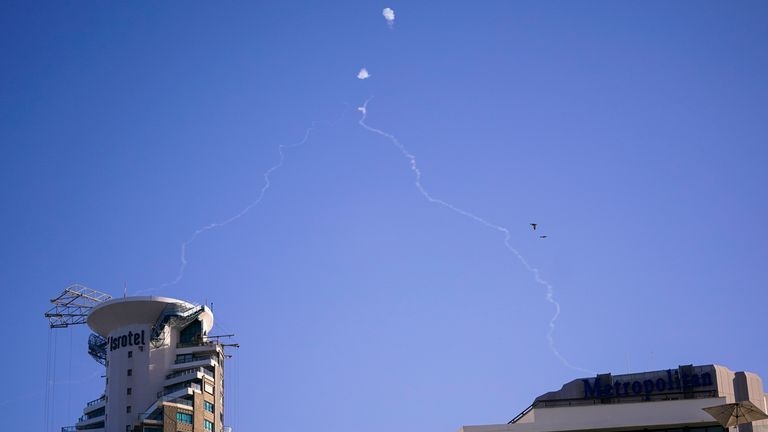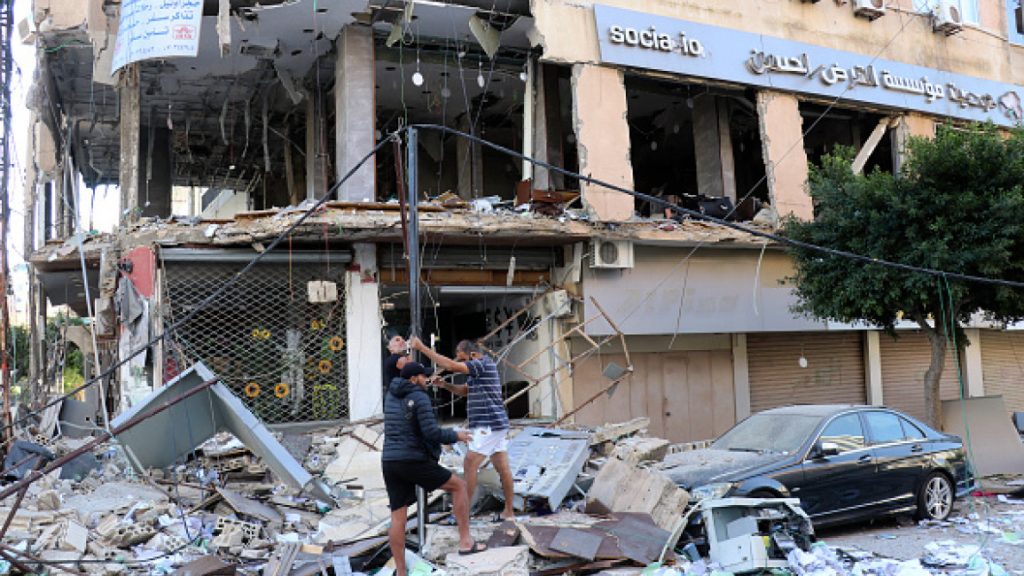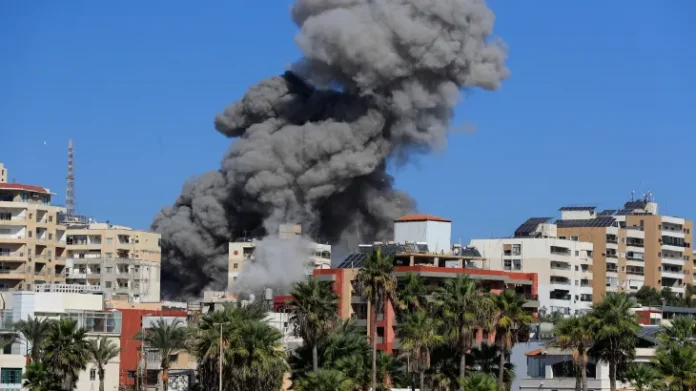On Wednesday, U.S. Secretary of State Antony Blinken urged a cessation of hostilities between Israel and the militant groups Hamas and Hezbollah, but Israeli airstrikes on the historic Lebanese port city of Tyre indicated no sign of slowing. Israel began bombing the UNESCO-listed city about three hours after issuing an online evacuation order for residents to flee central areas. Large clouds of smoke rose from residential neighborhoods, while tens of thousands of people had already fled Tyre in recent weeks due to Israel’s intensified military operations against Hezbollah in Lebanon and Hamas in Gaza, both backed by Iran.
Tyre, a vital southern port, is usually teeming with life, serving as a hub for fishermen, tourists, and U.N. peacekeepers. However, Israeli evacuation orders have targeted large parts of the city, even extending to areas surrounding its ancient castle. Blinken, on his first Middle East trip since Israel assassinated Hamas leader Yahya Sinwar last week, aimed to use this moment to push for renewed peace talks, hoping to leverage the death of Sinwar as an opportunity for negotiations. His visit, however, takes place just weeks before the U.S. presidential election on November 5, which could shift U.S. policy toward the region depending on the outcome between Vice President Kamala Harris and former President Donald Trump.

The U.S. is also trying to prevent a further escalation of the conflict, especially after an October 1 missile attack by Iran, which Tehran launched in solidarity with Hezbollah and Hamas. Blinken warned Israel on Wednesday that its military actions should not lead to further regional escalation. In southern Lebanon, the Israeli military reported killing three Hezbollah commanders and approximately 70 fighters in the last 48 hours. Just a day earlier, Israel had confirmed the killing of Hashem Safieddine, Hezbollah’s heir apparent, further destabilizing the militant group’s leadership.
During his meeting with Israeli Prime Minister Benjamin Netanyahu, Blinken emphasized the importance of consolidating Israel’s recent military successes. “Now is the time to turn those successes into an enduring strategic victory,” Blinken said, adding that efforts should focus on securing the release of hostages, ending the war, and planning for post-war recovery. However, Blinken’s planned visit to Jordan, scheduled for Wednesday, was postponed, and no new date has been announced by the Jordanian government.
Israel’s year-long campaign against Hamas and Hezbollah began after the Oct. 7, 2023, attack by Hamas fighters, who killed 1,200 Israelis and took more than 250 hostages. In response, Israel has waged a relentless offensive in Gaza, killing nearly 43,000 Palestinians in its efforts to dismantle Hamas. Last week, Israel claimed victory over Hamas by eliminating Sinwar, the mastermind behind the October 7 attacks. Concurrently, Israel has ramped up its military operations against Hezbollah in Lebanon, killing key figures in airstrikes and displacing over 1.2 million people in the country.

U.S. diplomats believe that Sinwar’s death presents a crucial moment to pursue peace. Washington is exploring new strategies to secure the release of hostages and bring the war to an end. However, there has been no noticeable reduction in hostilities. Hamas has remained firm in its refusal to release hostages without a commitment from Israel to end its operations in Gaza. Meanwhile, Israel insists it will not stop its campaign until Hamas is obliterated, nor will it back down in Lebanon until Hezbollah ceases to be a threat.
Diplomatic sources suggest that Israel is attempting to solidify its military gains before a potential shift in U.S. leadership after the November election. The Israeli military has stated that its operations in southern Lebanon remain focused on “localized, targeted raids” against Hezbollah’s infrastructure and operatives. On Tuesday, the Israeli Defense Forces (IDF) claimed that 70 Hezbollah fighters had been killed in ground and aerial strikes within the previous 24 hours.
Israel’s bombardment and ground offensive in Lebanon have triggered a mass exodus, with the Lebanese government reporting that 1.2 million people have been displaced. The death toll in Lebanon has reached 2,530, including at least 63 people killed in the last 24 hours alone. Israel’s military also confirmed on Tuesday that Safieddine, who was expected to succeed Hezbollah leader Hassan Nasrallah, had been killed in a strike on Beirut’s southern suburbs three weeks ago. Israel had previously suggested he was dead but stopped short of confirming it until now.

Hezbollah has yet to respond to the death of Safieddine, a blow to its leadership structure. Nasrallah, who transformed Hezbollah into a formidable military and political force, faces unprecedented challenges since the group’s formation by Iran’s Revolutionary Guards in 1982 in response to an Israeli invasion of Lebanon. However, Hezbollah’s ability to maintain influence amid these recent setbacks remains a critical concern as Israel’s military actions continue to destabilize the group. The situation in both Lebanon and Gaza remains tense as Israel presses forward with its offensive, while diplomatic efforts for peace seem increasingly tenuous.




